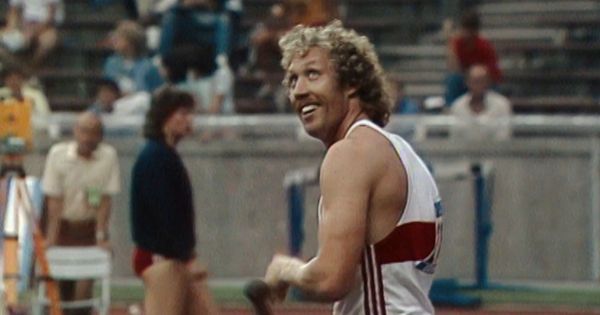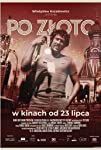Eye For Film >> Movies >> Going For Gold (2020) Film Review
Going For Gold
Reviewed by: Amber Wilkinson

The story of world-beating Polish pole vaulter Wladyslaw Kozakiewicz is recounted in this breezy documentary by Ksawery Szczepanik, which features his attempt to win a gold medal at the 1980 Moscow Olympics as its focal point. A wealth of archive competition footage is accompanied by a central interview from the man himself - a genial presence, who is still visibly emotionally moved by key aspects of his career - alongside select additional talking heads from fellow sportsmen, his brother and friends and admirers. Even accepting the time period makes it tougher, the gender balance is completely skewed to men and it's a shame that no room is found to hear from his wife, former swimmer Anna, or his two daughters.
Nevertheless, Szczepanik paints a comprehensive and absorbing picture of Kozakiewicz's dedication to his sport, running back to is childhood and a time of shifting Soviet borders, when his Polish family migrated back to the country from Lithuania, which saw he and his brother branded "Ruskies". In a move which would become something of a signature for Kozakiewicz as he got older, he threw himself into sport as a way of "showing them", keeping sports diaries, which we see snippets of in the film. As his brother Edward puts it, "He probably had quadruple ADHD".

Beginning with his key attempt on gold in Moscow, the film also considers Kozakiewicz's earlier bid for Olympic gold at the Montreal Games four years before that would be blighted by injury. The emotions still run deep for Kozakiewicz, not just as he talks about this but also as he considers the ways in which Soviet Poland controlled and blighted his career, for example, once disqualifying him for six months simply for refusing to go against his contract with Tiger and wear Adidas shoes.
Although the phrase "the Kozakiewicz gesture" - essentially the"get it up you" arm movement, or the bras d'honneur to give it its Sunday name - may not be widely known outside of his homeland, his use of it in Moscow in response to the whistling antagonistic home crowd, would become a symbol of rebellion against the Soviets, picked up by the folks back home in Poland and which remains resonant to this day.
Szczepanik picks up on the way that athletes can easily be co-opted as symbols of something much more political than the simple act of sporting success - a spontaneous gesture becoming cemented in the national consciousness as polticians looking for an easy way to the hearts and minds of the populace. He also charts the effects of fame and the natural arc of a sportsman's career on Kozakiewicz's life and the way that populist success can be a fickle beast, especially when it becomes mired in politics, whether consciously or not.
While chiefly aimed at a domestic Polish audience of sports lovers, Szczepanik's film is both comprehensive enough to be enjoyed by those who have never heard of the athlete before and ventures into sociopolitics in ways that have echoes in other more recent examples of sport becoming politicised, such as the controversy that sprang up around US football player Colin Kaepernick's taking of the knee in 2016.
Reviewed on: 14 Oct 2020
















